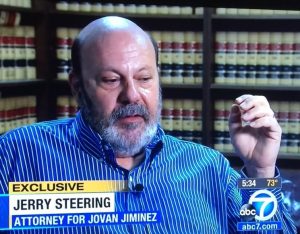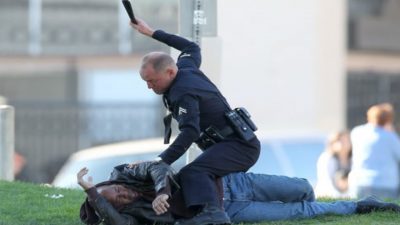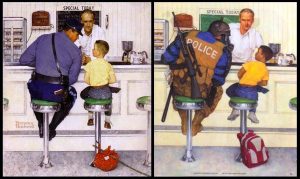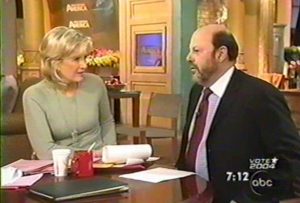![Police Misconduct Attorney]() Why Grand Juries Don’t Indict Police Officers?
Why Grand Juries Don’t Indict Police Officers?
PROSECUTORS PRESENT CASES OF DUTY RELATED POLICE MISCONDUCT TO GRAND JURIES, BECAUSE THEY DO NOT WANT TO PROSECUTE THE POLICE.
When a District Attorney presents a case of duty related police misconduct, such as the use of unreasonable force in making an arrest, to a Grand Jury, that prosecutor has already made a decision to not criminally prosecute the police officer. That way, when the Grand Jury refuses to Indict the officer, the Prosecutor (i.e. District Attorney’s Office, Attorney General’s Office), the Prosecutor can stand before the Press and tell them that they present all of the relevant material evidence to the Grand Jury, and the Grand Jury refused to Indict the police officer.
If the Prosecutor actually intended on prosecuting the police officer, they would have simply filed a Felony Complaint, had the police officer arrested, and prosecute the officer. If the officer is prosecuted via Felony Complaint rather than by an Indictment by a Grand Jury, the officer will be entitled to a “Preliminary Examination”; often referred to in felony cases as a “Preliminary Hearing”.
All that the prosecution needs to show at a Preliminary Hearing is “probable cause” (i.e. a strong suspicion of guilt) to believe that a crime was committed, and that the defendant probably committed it. It is a very low evidentiary standard, and is an easy one to overcome for a prosecutor.
REASONS WHY PROSECUTORS DON’T PROSECUTE THE POLICE.
There are many reasons for these County District Attorney’s not to seek the criminal prosecutions of police officers, and not all of them are dishonorable.
REASON NUMBER ONE; THE POLICE ARE ALMOST ALWAYS ACQUITTED BY JURIES, AND PROSECUTORS DON’T WANT TO FACE THE HUMILIATION AND POLITICAL DAMAGES TO THEM FROM SUCH ACQUITTALS.
Prosecutors usually lose when they prosecute police officers for duty related activities (i.e. use of force in making arrests or detentions). With few exceptions, County District Attorneys are not capable of obtaining guilty verdicts in criminal cases against police officers. Juries have been brainwashed their entire lives to believe that the police are basically honest, with a few bad apples; something totally untrue.
Also, the DA’s office is not disposed to accept the proposition that the police agency that employs the police officer who the DA’s Office is investigating, is institutionally corrupt, and will never admit that their officer did anything of a criminal nature. No one is going to prosecute a police agency from withholding incriminating evidence about one of that agency’s officer; no one. It doesn’t happen in this world.
Moreover, the County District Attorneys are either dumb enough to actually believe the false reports and missing / altered evidence created / obtained by their friends the police, or they are just going along with the police line, and letting the jury sort things out. Because of this almost blind admiration of and belief in the investigating police agency, the County District Attorney’s Office is really incompetent to prosecute police officers for crimes for duty related activities.
Because of this blind reliance on the honesty of police agencies, County District Attorney’s Office usually get the case brought to them on a silver platter; a platter with limited evidence. The police agencies may have to play politics and throw a few Christians to the Lions to satisfy the political mob (i.e. prosecute one of their own), but when they do so, they protect as much of the City or County coffers as they can. They don’t give the DA’s office the full story or the real evidence; just enough to satisfy the mob; the now millions of civilians who are sick of the police murdering innocents for reaching for their pockets.
County District Attorneys and their Deputy District Attorney’s want to curry favor with the police; often for anticipated career advancement; both within and without (i.e. judge) the District Attorney’s Office. No one ever got elected to Executive Office in this country by promising to protect the public from the police.
Accordingly, in the end, the Prosecutor is politically better-off not prosecuting the police. If he wins, the police will respect him but hate him, and if he loses, the police won’t respect him and neither will the public; especially at the ballot box. In a very real sense, there is no upside for a Prosecutor to prosecute a police officer for a duty related activity.
REASON NUMBER TWO; THE EMPLOYING POLICE AGENCIES ACTIVELY THWART THE PROSECUTOR’S INVESTIGATION.
The employing police agencies of police officers who commit duty related crimes not only don’t fully cooperate with the Prosecutors, but they actually thwart any such criminal prosecutions against their police officers. They routinely lie to the DA’s office, as well as withhold much of the incriminating evidence in their possession that would increase the probability of a conviction of their officer.
For example, although the employing police agency will routinely do a professional standards / internal affairs investigation of their own officer, that almost always includes obtaining recorded statements of the officer being investigated, and those of his/her fellow officers. However, they will not provide either the results of their professional standards / internal affairs investigation , or the evidence (including paraphrased or recorded witness statements) obtained pursuant to the employing agency’s internal investigation.
When a cop commits a crime against a civilian, the employing police agency performs three investigations; 1) a Civil Liability Investigation, done by the Risk Management and Internal Affairs Division of a police agency; 2) a Criminal Investigation, usually done by the agency’s Homicide Unit, and 3) an Internal Affairs Investigation. It’s a gimmick; a ruse, and its created and supported by state statutes enacted to protect police officers from criminal prosecution, and the civil liability to the employing public entity that would result from a conviction of their officer for conduct such as the use of unreasonable force and false arrests.
Police Agencies are not only not required to provide their Internal Affairs Investigation of the police officer, but in states like California, it is an actual crime for the police agency to do so. So, in California, notwithstanding that an agency’s police officer committed a serious crime against a civilian, even though the agency has a recorded statement from the officer admitting the crime, the agency is prohibited from providing those statements to the District Attorney’s Office. This is plain nuts.
In addition, although the very same police agency that obtained a recorded statement from the violating police officer admitting guilt, the Internal Affairs Investigators will not provide to the Criminal Investigators the statement or the contents thereof.
The Civil Liability Investigation is also off-limits to all but the employing agency and the police officer who was investigated.
Accordingly, notwithstanding long established basic criminal law in the United States that police agencies must provide to a criminal defendant any evidence in their possession that might tend to show the criminal defendant’s innocence (See, Brady v. Maryland, 373 U.S. 83 (1963)), police agencies routinely refuse to provide such evidence when it was obtained by the employing agency pursuant to an Internal Affairs Investigation.
Moreover, from the standpoint that for the purposes of having possession of evidence, or knowledge of certain facts that would tend to benefit a criminal defendant’s chances of winning his/her criminal case, the police and the prosecution are deemed to be one in the same. In other words, the facts that the cops kept certain facts, material and exculpatory facts, from the County District Attorney’s Office, doesn’t relieve the prosecution of its duty to have disclosed any such exculpatory information, because the District Attorney’s Office and the police are deemed to know what each other knows, and possess what each other possesses. See, Kyles v. Whitley, 514 U.S. 419 (1995.)
PRACTICALLY, BECAUSE THE DISTRICT ATTORNEY’S OFFICE CONSIDERS THE POLICE THEIR CLIENTS; NOTWITHSTANDING THAT IS NOT THEIR ROLE AND THEIR PROPER RELATIONSHIPS WITH THE POLICE.
“The district attorney is not an “attorney” who represents a “client” as such. He is a public officer, under the direct supervision of the Attorney General”. See, Shepherd v. Superior Court, 17 Cal.3d 107 (1976.)
Nonetheless, at least in the arena of police misconduct cases, such as when the police use unreasonable force upon a civilian, and then charge the civilian with some “resistance offense“, your local County Deputy District Attorney will gladly take it upon themselves to preclude you, the victim of the beating, the false arrest, and now the bogus and malicious criminal prosecution, from being able to sue the very person who committed the constitutional violations and outrages against you. Some County Deputy District Attorney’s or City Attorney’s Office that may also prosecute misdemeanor cases (i.e. misdemeanors are criminally prosecuted by the Los Angeles City Attorney’s Office rather than the Los Angeles County District Attorney’s Office in the City of Los Angeles.) Some prosecutorial agencies even have “extortion forms”; misdemeanor plea forms where’s the a little box where someone checks-off the “stipulates to probable cause” box; something that most than not will preclude you from being able to sue the police. See, MacDonald v. Musick, 425 F.2d 373 (9th Cir. 1970):
“It is no part of the proper duty of a prosecutor to use a criminal prosecution to forestall a civil proceeding by the defendant against policemen, even where the civil case arises from the events that are also the basis for the criminal charge. We do not mean that the prosecutor cannot present such a criminal charge. What he cannot do is condition a voluntary dismissal of a charge upon a stipulation by the defendant that is designed to forestall the latter’s civil case. The situation is made no better by the fact that here the record indicates that it was the court that asked MacDonald whether he would stipulate. Rather, it makes it worse. It brings the court to the aid of the prosecutor in coercing the defendant into agreeing to what amounts to a forfeiture of his civil rights. Nor can the prosecutor, because of failure to obtain the demanded stipulation, then introduce another charge in the hope of defeating the possible civil action of the defendant.
The impropriety of the prosecutor’s conduct requires little exposition. In California, extortion is defined as ‘the obtaining of property from another, * * * induced by a wrongful use of * * * fear, or under color of official right.’ (Cal.Pen.C. 518.) There is no doubt that a cause of action for personal injuries is property. Franklin v. Franklin, 1945, 67 Cal.App.2d 717, 155 P.2d 637. Section 519 of the same code defines ‘fear’ as ‘induced by a threat * * * 2. To accuse the individual threatened * * * of any crime * * *.’ See Barton v. State Bar of California, 1935, 2 Cal.2d 294, 40 P.2d 502; Bridge v. Ruggles, 1927, 202 Cal. 326, 260 P. 553
The Canons of Ethics have long prohibited misuse of the criminal process by an attorney to gain advantage for his client in a civil case. ABA Code of Professional Responsibility, 1969, provides in section DR 7-105, p. 88: ‘(A) A lawyer shall not present, participate in presenting, or threaten to present criminal charges solely to obtain an advantage in a civil matter.’ See Barton v. State Bar of California, supra. In this respect, we can see no difference between public prosecutors and other lawyers.”
Notwithstanding these rather clear parameters, Deputy District Attorneys makes these type of “can’t sue the cops if you take it” offers every day. This is business as normal. Deputy District Attorneys who are known for protecting the police foresee endorsements in the future for them by the police, when they run for judge. No one every won an election by campaigning that they were going to stop or slow down police abuse of civilians; it the opposite.
It should come as no surprise that a Grand Jury usually won’t Indict a police officer for duty related activities, such as beating and often killing unarmed civilians. The public these days see videos of police beatings and killings, and are puzzled as to what else a police officer would have to do to get Indicted. They perceive grave injustices by these failures to Indict, and are at a loss as to why no Indictment issued. In order to understand why this is happening in America, one must understand the role of the Grand Jury in the federal judicial system, and the Grand Juries role in the various states. If the DA presents evidence but doesn’t ask the Grand Jury to Indict the officer, chances are that they won’t do so, even the same evidence they they would use to obtain an Indictment, but spins it in a light not likely to result in a criminal prosecution, or doesn’t present the same evidence that it would had it truly been seeking an Indictment, chances are there will be no True Bill of Indictment issuing from the Grand Jury for that case.
If County District Attorneys actually desired to prosecute state and local police officers for duty related conduct (i.e. use of unreasonable force and false arrests), they wouldn’t bother taking the case to a County Grand Jury; they would simply file a Felony Complaint, arrest the officer, proceed with a Preliminary Examination, and proceed to trial. This how felony cases are normally prosecuted at the state and county level. It’s only when the DA’s believe that they couldn’t even get the felony prosecution past the low evidentiary threshold of a Preliminary Examination (i.e. that threshold being there’s at least a scintilla of evidence that a crime was probably committed and that the accused probably committed it), that the DA obtains a Grand Jury Indictment to prosecute a state law felony case. When County DA’s submit a case to a Grand Jury against a police officer, they are using the Grand Jury as a ruse, to place the blame for the failure to prosecute the police officer on the Grand Jury, rather then them.
State and Federal Grand Jury proceedings are held in secret, and only the prosecutor gets to present evidence or argue to the Grand Jury. If the prosecutor wants someone Indicted, it’s basically a given that they can obtain a Grand Jury Indictment against that person. It’s truly a rarity if a prosecutor can’t get a Grand Jury to Indict another. Witnesses who divulge their Grand Jury testimony are subject to criminal prosecution. It’s only when the prosecutor doesn’t want the Grand Jury to Indict, that they don’t do so. In fact, it’s only cases of police shootings, torturing and the like, that a District Attorney submits the case to the Grand Jury at all; at least at the state level. There are some politicians who are also Indicted by Grand Juries, but those proceedings are rare. This is not true for federal prosecutors. As explained below, under the federal system of criminal justice, a person accused of a felony is entitled to have a Grand Jury Indict them to be prosecuted for a felony.
CALIFORNIA’S ATTEMPTED SOLUTION TO THE DUMP IT WITH THE GRAND JURY PROBLEM; SENATE BILL 227.
On August 11, 205 California Governor Jerry Brown signed into law Senate Bill 227, that thereafter barred the use of Grand Juries in police brutality / police homicide case. SB 227 states:
The people of the State of California do enact as follows:
SECTION 1.
Section 917 of the Penal Code is amended to read:
(a) The grand jury may inquire into all public offenses committed or triable within the county and present them to the court by indictment.
(b) Except as provided in Section 918, the grand jury shall not inquire into an offense that involves a shooting or use of excessive force by a peace officer described in Section 830.1, subdivision (a) of Section 830.2, or Section 830.39, that led to the death of a person being detained or arrested by the peace officer pursuant to Section 836.
PEOPLE EX REL. PIERSON v. SUPERIOR COURT; SECTION 917 HELD UNCONSTITUTIONAL.
In People Ex Rel. Pierson v. Superior Court, 7 Cal.App.5th 402 (2017) the California Court of Appeal held that Section 917 is unconstitutional. The Court of Appeal held that the California Constitutional system for the prosecution of felonies provides for prosecution via Grand Jury Indictments and that the California Legislature did not have the authority to change that.
“Real parties in interest concede that the Legislature “has defined and limited the grand jury’s powers” and “remov[ed] jurisdiction.” They assert this is permissible because section 14 of article I of the California Constitution authorizes the Legislature to choose between the procedure of indictment or preliminary examination for cases. But as noted above, Bird specifically found the history of the Constitution to be to the contrary, withholding from the Legislature the power to make such a choice and explicitly providing for the availability of both procedures in all criminal cases at the choice of the prosecution. They emphasize the Legislature’s plenary power over the workings of the grand jury, but disregard the limitation discussed above that this is exercised subject to the express provisions in the Constitution. The fact that a preliminary hearing is still available for cases involving a peace officer’s use of fatal force does not cure the violation of eliminating the constitutional power of the grand jury to act in such cases; just as procedures must allow for the existence of a magistrate and preliminary examination, so must procedures allow for the return of an indictment.”People Ex Rel. Pierson v. Superior Court at 413-414.
So much for “putting the squeeze on your local District Attorney to step up to the plate and stop blaming Grand Juries for making the decision not to prosecute the police.
So, the County District Attorneys in California can still dump their officer involved shooting or beating cases on the Grand Jury.
Jerry L. Steering
Published: 2/5/2019

 Why Grand Juries Don’t Indict Police Officers?
Why Grand Juries Don’t Indict Police Officers?




